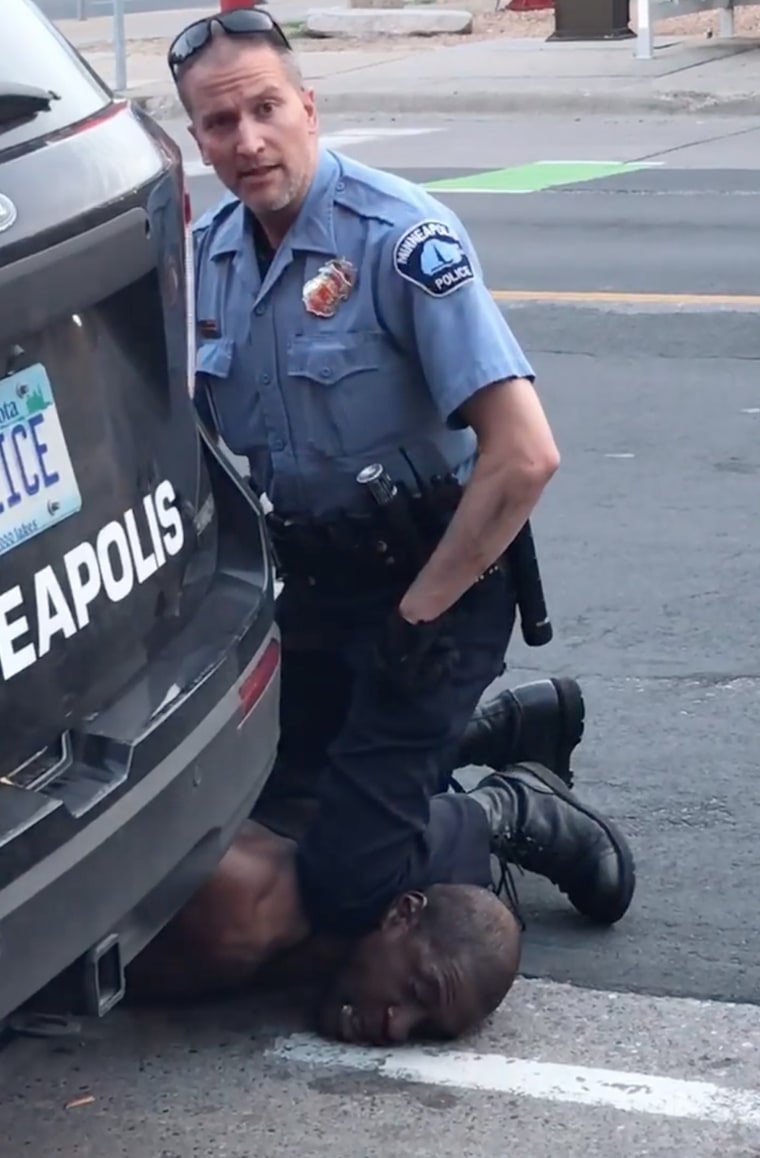The start of jury selection was delayed Monday in the trial of Derek Chauvin, the former Minneapolis police officer accused of killing George Floyd, while an appeal proceeds over the possible reinstatement of a third-degree murder charge.
Chauvin, who was recorded on video kneeling on Floyd's neck for about nine minutes, is charged with second-degree murder and manslaughter.
An appeals court ruled Friday that prosecutors can also try to reinstate a third-degree murder charge.
Chauvin's lawyer, Eric Nelson, said Monday that he intends to file a petition for review to ask the Minnesota Supreme Court to consider Friday's ruling, prompting prosecutor Matthew Frank to argue that the district court does not have jurisdiction to proceed before the matter is resolved.
Jury selection, which was scheduled to begin Monday, will be delayed for at least a day. Potential jurors were sent home while the state filed a motion with an appeals court to delay the jury selection process.
Hennepin County District Judge Peter Cahill said he is prepared to move forward with what will be one of Minnesota's highest-profile trials ever.
Cahill said that the third-degree murder charge is a narrow issue and that the court can proceed with other motions and jury selection and "figure out where we're at March 29," when opening statements are set to begin.
Frank, however, contended that proceedings be delayed in part so that jurors would know what charges they would be considering.
"This court will be seating jurors for a trial about which we don't know what the exact charges are going to be yet," he said.
He asked that the court stop the jury selection process and allow Frank's petition to be filed.
That would delay the trial by at least 30 days, Cahill said.
Minnesota Attorney General Keith Ellison said the state is ready to go to trial, but that the trial "must be conducted in accordance with the rules and the law."
"Now that Mr. Chauvin has stated his intention to appeal Friday's Court of Appeals ruling to the Minnesota Supreme Court, as is his right, the district court does not have jurisdiction to conduct jury selection or hear and rule on other substantive matters in the trial," he said in a statement. "We have filed motion with the Court of Appeals to ensure that justice is pursued properly."

In the decision, a three-judge panel said Cahill was wrong to refuse prosecutors' request to add a third-degree murder charge in October. The panel said Cahill should have followed the precedent the appeals court set last month when it affirmed the third-degree murder conviction of Mohamed Noor, a former police officer, in the 2017 fatal shooting of Justine Ruszczyk Damond, an Australian woman who had called 911 to report hearing a possible sexual assault happening.
Cahill ruled last week that only one member of Floyd's family will be allowed to attend the trial at a time and that different family members will be able to rotate through the position. The ruling also applies to Chauvin's family.
Floyd, a Black man, died May 25 after Chauvin, who is white, pressed his knee on Floyd's neck while he was handcuffed. Chauvin remained in that position for several minutes, even as Floyd said that he couldn't breathe. The incident was recorded by a bystander and widely shared on social media. Police were investigating whether Floyd used a counterfeit $20 bill at a nearby store.
Floyd's death sparked nationwide protests and renewed calls for an end to police brutality and racial inequities.
Chauvin and the three other officers who were at the scene were fired the day after Floyd's death, and they were later arrested. The other three officers, who were charged with aiding and abetting second-degree murder and manslaughter, are expected to go to trial in August. Prosecutors have asked the Court of Appeals to reinstate third-degree murder charges against them, too.
Chauvin had agreed to plead guilty to third-degree murder and go to prison for more than 10 years shortly after Floyd's death in an attempt to avoid future federal charges, but then-U.S. Attorney General William Barr was reported to have rejected the deal because Ellison was preparing to take over the case from the county prosecutor and Barr wanted to let him make his own decisions. Barr also was reported to have been worried that it was too early in the investigation and that the agreement would be perceived as too lenient.
